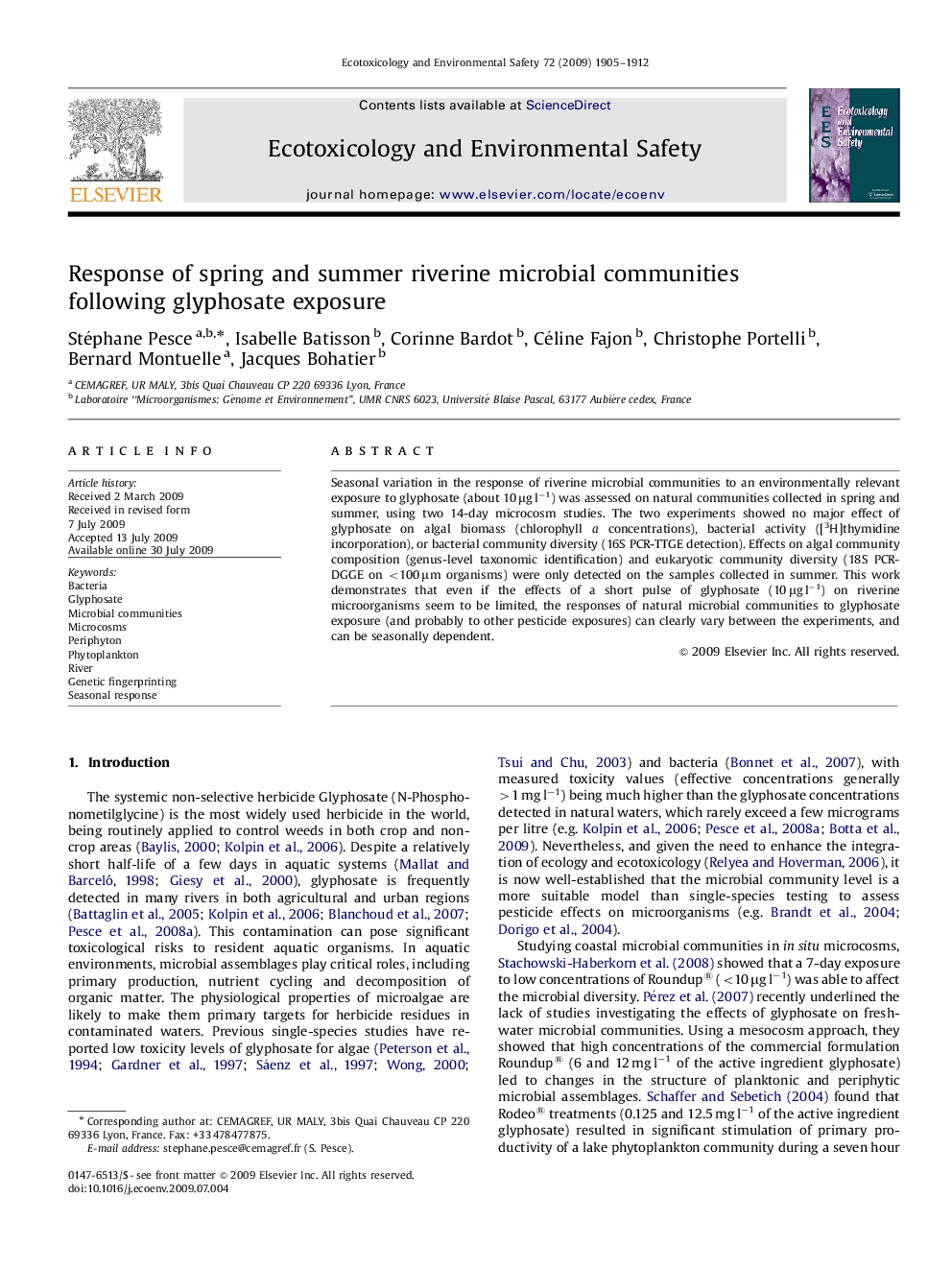| Article ID | Journal | Published Year | Pages | File Type |
|---|---|---|---|---|
| 4421537 | Ecotoxicology and Environmental Safety | 2009 | 8 Pages |
Seasonal variation in the response of riverine microbial communities to an environmentally relevant exposure to glyphosate (about 10 μg l−1) was assessed on natural communities collected in spring and summer, using two 14-day microcosm studies. The two experiments showed no major effect of glyphosate on algal biomass (chlorophyll a concentrations), bacterial activity ([3H]thymidine incorporation), or bacterial community diversity (16S PCR-TTGE detection). Effects on algal community composition (genus-level taxonomic identification) and eukaryotic community diversity (18S PCR-DGGE on <100 μm organisms) were only detected on the samples collected in summer. This work demonstrates that even if the effects of a short pulse of glyphosate (10 μg l−1) on riverine microorganisms seem to be limited, the responses of natural microbial communities to glyphosate exposure (and probably to other pesticide exposures) can clearly vary between the experiments, and can be seasonally dependent.
